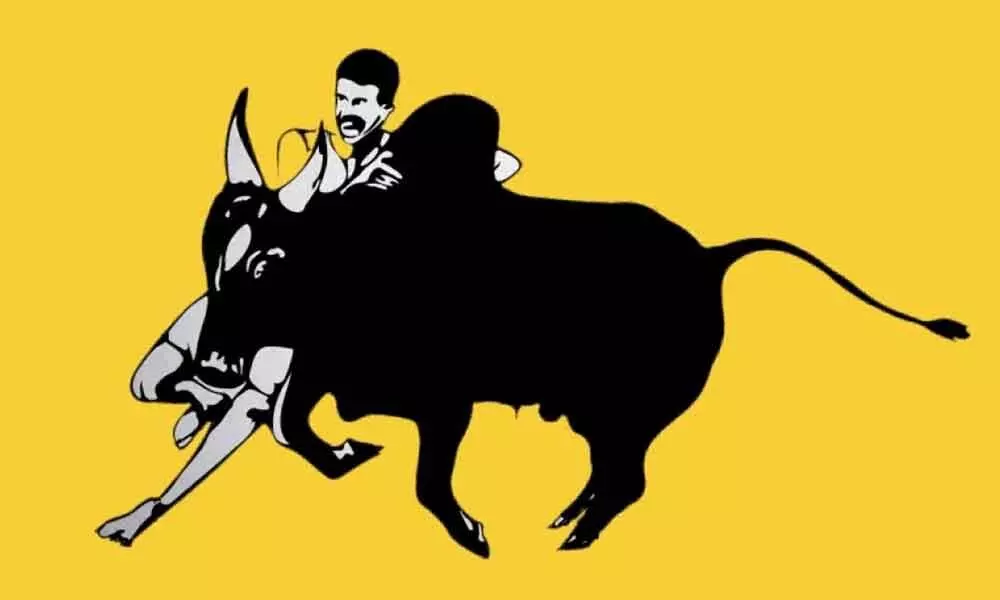Chennai: Citing Covid risk, 80 doctors plead to stop jallikattu

For representational purpose only
As many as 80 medical doctors from different parts of the country have appealed to the Tamil Nadu government to disallow jallikattu events, which are to be organised in January.
Chennai: As many as 80 medical doctors from different parts of the country have appealed to the Tamil Nadu government to disallow jallikattu events, which are to be organised in January.
The letter addressed to Chief Minister MK Stalin and the minister of health, medical education, and family welfare Ma Subramanian points out that the potentially super-spreader spectacles pose a grave health risk to the public.
"Prohibiting non-essential activities such as jallikattu events, which lead to unnecessary mass gatherings, is essential to prevent the rapid spread of Covid-19 and to protect public health as well as to ease the pressure on health-care professionals," says Dr Deepshikha Chandravanshi, one of the doctors who signed the letter.
According to People for the Ethical Treatment of Animals (PETA) India, the plea comes in the backdrop of several countries around the world imposing new safety guidelines in response to rising COVID-19 cases and the threat of the Omicron variant.
"Non-essential events such as jallikattu have no place in a country battling a deadly contagious virus," says PETA India CEO Manilal Valliyate. "PETA India is calling on officials to heed the professional opinions of these medical doctors and call off jallikattu events to protect the bulls from cruelty and the public from a life-threatening disease."
Since the Tamil Nadu government legalised jallikattu in 2017, at least 22 bulls and 69 humans have reportedly died, while more than 4,696 humans have been injured, a PETA India statement noted.
The animals' rights organisation has documented extreme cruelty to bulls during these events, which are attended by up to thousands of people. Video footage of 2021 events show masses of unmasked people in close proximity, conditions ripe for the spread of Covid-19, particularly the easily transmissible Omicron variant.















